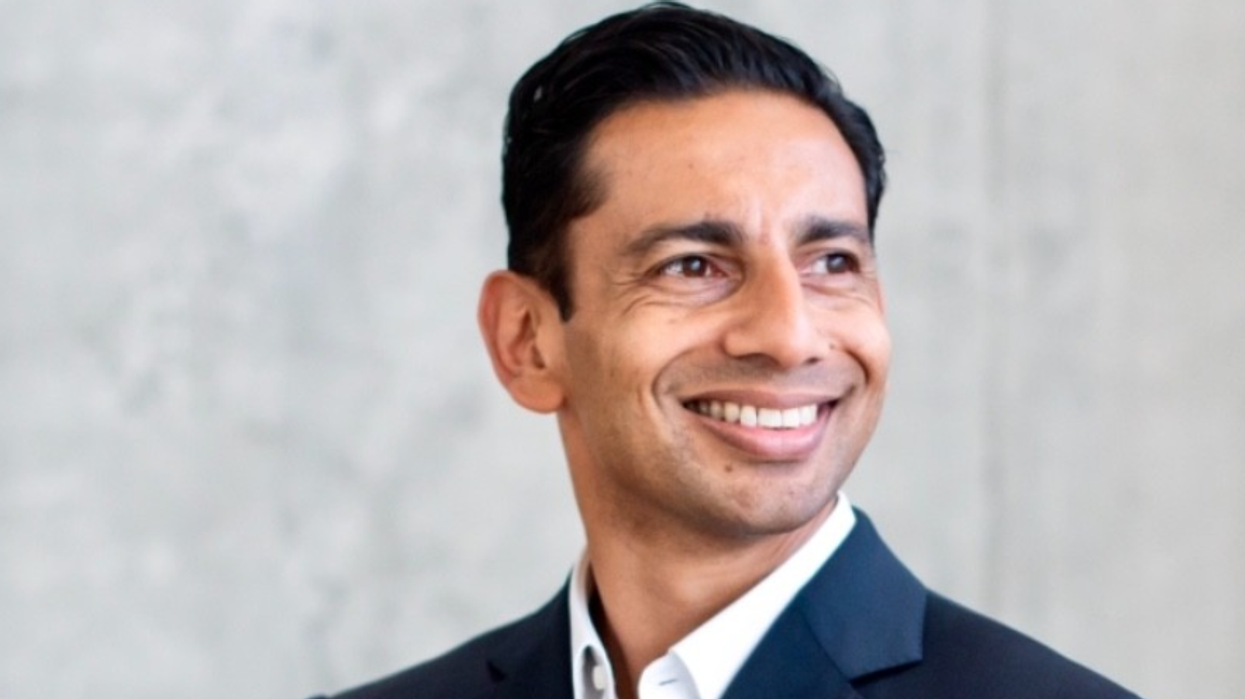ASIAN executive Ashwin Prasad has been appointed as the UK CEO of Tesco replacing Matthew Barnes, who has stepped down to pursue other opportunities, the company announced on Thursday (22). Prasad, who is Tesco Group’s chief commercial officer, will assume the role on June 30.
Prasad is currently responsible for the group’s product and customer strategy. He has been a member of Tesco’s executive team since 2020 and brings a wealth of retail and commercial experience to this role.
In recent times, he has successfully led the business through supply chain disruptions, as well as driving Tesco's trading strategy and accelerating our digital marketing transition.
Prasad said, “I pick up the reins of a business with strong momentum, a winning strategy and a talented team. I am privileged to be appointed UK CEO and my priority will be to continue offering our customers an unbeatable experience, every time they shop with Tesco. I would also like to thank Matthew for his support and wish him well for the future.”
At Tesco, he wields influence far beyond the aisles of its stores. Under his stewardship, the supermarket group has launched groundbreaking initiatives in sustainable agriculture. The partnership with potato supplier Branston and livestock processor ABP to create two low-carbon concept farms exemplifies his innovative approach.
Prasad was ranked 52nd in the GG2 Power List 2025, published by Asian Media Group, which profiles Britain's 101 most influential Asians.
Born in Suva, Fiji, and raised in New Zealand, he brings a global perspective to his leadership. Educated at Auckland University and Harvard Business School, he cut his teeth in commercial and marketing roles at The BOC Group and Mars Inc. before joining Tesco in 2010.
Prasad’s rise in retail has coincided with some of the most volatile years in modern business history. From Brexit to Covid-19, from supply chain crises to soaring inflation, he has had to navigate Tesco through relentless turbulence.
He credits his father for instilling in him an unwavering work ethic, teaching him that “giving up was just not an option” - a philosophy that would shape his leadership style and career trajectory.
His personal passions – scuba diving, wildlife conservation, and discovering the world’s best food and wine – offer a glimpse into a leader who values both adventure and precision. He admires Satya Nadella, Microsoft’s transformational CEO, for his ability to cultivate a learning organisation rooted in curiosity and empowerment – qualities Prasad himself embodies.
Murphy, said, “Matthew leaves with our respect and sincere thanks for his contribution. Under his leadership, our business has gone from strength to strength. His obsession with customers has made a big impact and we are winning in the market by offering customers unbeatable value. We wish him the very best in his next chapter.
“Ashwin is an exceptional leader with a strong track record for delivering for our customers. His experience leading our product and customer strategy makes him the ideal person to take over as UK CEO."
He added, “Our strategy focuses on being brilliant at the basics whilst stepping forward on big strategic initiatives – by becoming increasingly digital & delivering more personalised customer engagement, through new growth avenues such as Marketplace, and by further developing leading capabilities such as retail media.
"We are pleased to be making strong progress against our growth ambitions, and the newly created role of Chief Strategy & Transformation Officer will set us up even better to continue winning in the future. I am delighted to appoint Natasha, one of our most experienced and capable leaders, into this role.”
In a major shake-up at Tesco, Natasha Adams, currently Tesco Ireland & NI CEO, has been appointed to a newly created role on the executive committee as chief strategy & transformation officer, effective from June 9.
Geoff Byrne, currently chief operating officer in Ireland, has been promoted as Tesco Ireland & NI CEO. All executive roles continue to report to Group CEO Ken Murphy, the company said.
Barnes said, “I have decided to step down to pursue other opportunities. Leading Tesco’s UK business has been a privilege, and I am proud of everything we have achieved together. I believe our colleagues are the best in the industry, and I would like to thank everyone for their support. I would also like to wish Ashwin the very best in his new role.”





